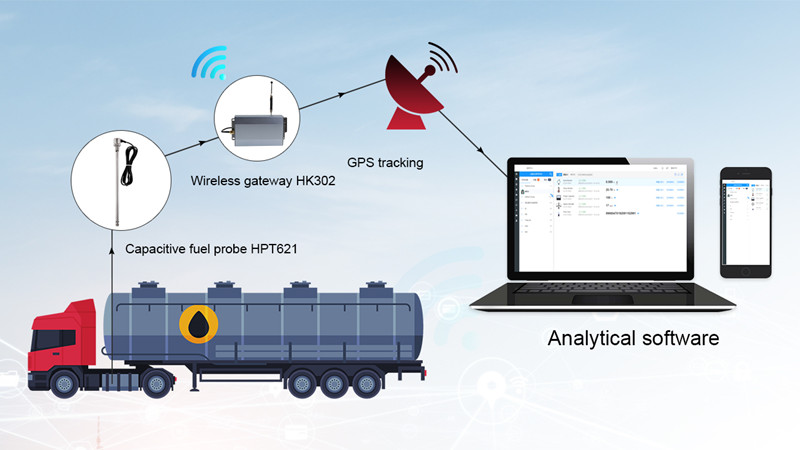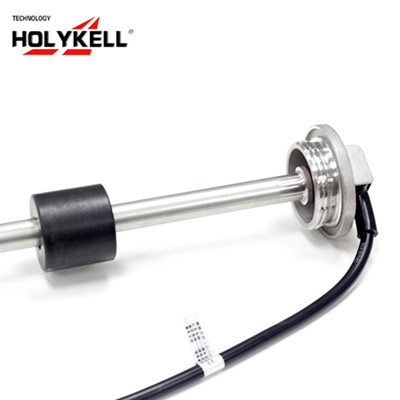Enhancing Fuel Management Efficiency: Vehicle Fuel Tank Level Monitoring Solutions
Introduction
In this fast-paced world, efficient fuel management is essential for fleet management and individual vehicle owners . With rising fuel costs and increasing environmental concerns, monitoring fuel tank levels accurately has become a top priority.
Challenges in Fuel Management
Traditional methods of fuel monitoring, such as manual readings or visual inspections, are prone to inaccuracies and inefficiencies. Fuel theft, inaccurate reporting, and inefficient fuel usage are common challenges faced by vehicle owners and fleet managers. These challenges not only lead to increased operational costs but also pose safety and compliance risks.
To solve the challenges in fuel management, we offer two effective solutions – the capacitive level sensor HPT621 and float level sensor HVS.
Capacitive Level Sensor HPT621
The HPT621 capacitive level sensor utilizes advanced capacitive sensing technology to accurately measure the level of liquid in fuel tanks. Its compact design and robust construction make it suitable for various vehicle applications, providing real-time data on fuel levels with high precision.

Advantages:
●Accurate detection of fuel level changes with accuracy up to 0.5%F.S
●Withstand harsh environments( 300℃) , contamination and vibration
●Suitable for a wide range of liquids, including fuels, oils, and water
●Support local ZERO and SPAN calibration
●Compatible with GPS tracking system for vehicle position monitoring
●Remote monitoring capability
Limitations:
●Regular calibration may be required.
With the combination of a wireless module and a GPS system, we can know the real-time truck fuel level, truck location, fuel changes and more.
Float Level Sensor HVS
The HVS float level sensor offers a cost-effective solution for fuel tank level monitoring. Its simple yet effective design ensures reliable performance in detecting changes in fuel levels, making it an ideal choice for fleet vehicles and commercial applications.

Advantages:
●Constructed from high-quality materials, robust and resistant to corrosion
●Simple and robust design with fewer components, making them cost-effective
●asy to install with minimal maintenance
●Multiple sizes available, suitable for both small and big tanks
Limitations:
●Limited accuracy compared to some other sensing technologies.
Compared with HPT621, HVS is more affordable but the accuracy is a bit lower. For a higher accuracy, we recommend HPT621, for a more cost-efficient solution, HVS is recommended.
Benefits of Implementing Fuel Tank Level Monitoring Systems:
1. Real-time monitoring of fuel levels, allowing for proactive fuel management and optimization.
2. Reduction of fuel theft and unauthorized fuel usage through accurate monitoring and reporting.
3. Improved operational efficiency and cost savings by minimizing fuel wastage and optimizing refueling schedules.
4. Enhanced safety and compliance with regulatory requirements through accurate fuel inventory management.
Both HPT621 capacitive level sensor and HVS float level sensor are easy to install, and compatible with various systems and devices..
Conclusion:
By implementing these solutions, vehicle owners and fleet managers can optimize fuel usage, reduce operational costs, and enhance overall efficiency.
Contact us for more solutions about fuel tank monitoring.
Related Posts
Fuel Level Monitoring at Gas Station Using Automatic Tank Gauge (ATG) System
New Fuel Level Probe Makes Monitoring Fuel Tanks Safe
Oil Tank Sensor for Fleet Management





